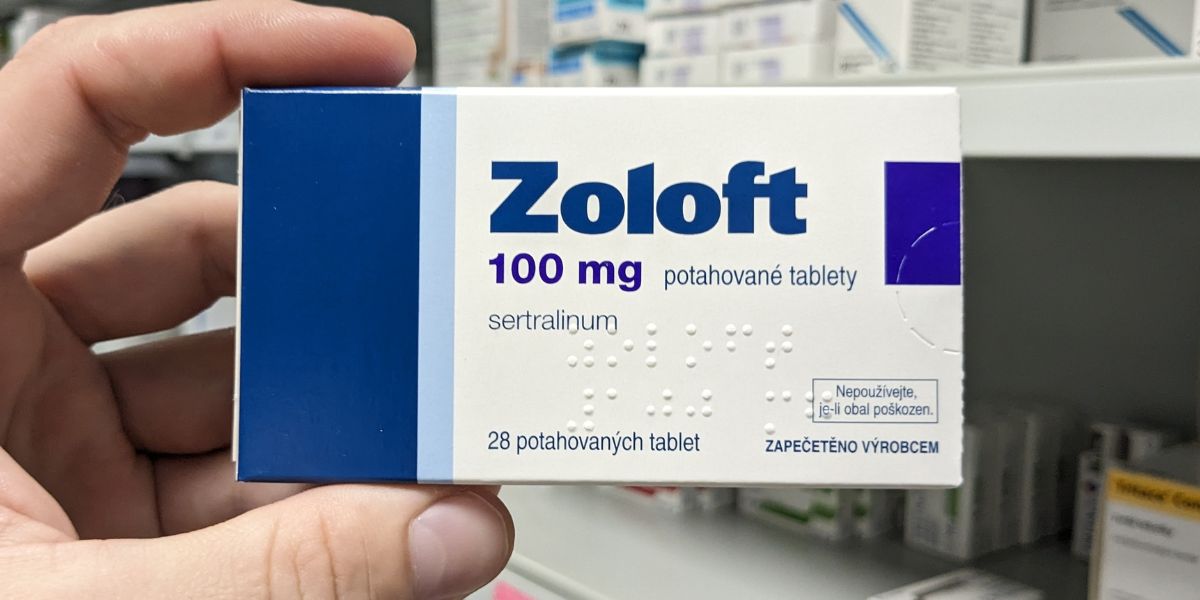Is Zoloft (Sertraline) Addictive?

Zoloft, also known as sertraline, is a common prescription medication used to treat depression, anxiety, and other mental health issues. Zoloft is a selective serotonin reuptake inhibitor (SSRI) that helps increase serotonin levels in the brain. This can improve mood and reduce symptoms of different disorders.
However, concerns about its potential for addiction and dependence have arisen among patients and healthcare providers. This blog aims to explore whether Zoloft is addictive, its side effects, withdrawal symptoms, and the safety of its use.
What Is Zoloft?
Zoloft is a type of antidepressant medication that belongs to a group of prescription drugs called selective serotonin reuptake inhibitors (SSRIs). It is often used to treat major depressive disorder, panic attacks, social anxiety, post-traumatic stress disorder (PTSD), premenstrual dysphoric disorder (PMDD), obsessive-compulsive disorder (OCD), and other conditions.
Zoloft, or sertraline, boosts serotonin in the brain to enhance mood, lower anxiety, and support mental health. Doctors usually give the medication in regular doses. These doses can be changed based on the patient’s illness and how they react to the drug.
Zoloft is not only effective for treating depression but also for managing symptoms of PTSD and social anxiety disorder. The medication works by balancing serotonin levels, which can be crucial for people struggling with these conditions. Zoloft can help with PTSD symptoms, like flashbacks and anxiety, improving life for people with the condition.
The efficacy of Zoloft extends to treating panic disorders, where patients experience sudden and repeated attacks of intense fear. Studies have shown that Zoloft can reduce the frequency and severity of panic attacks. This can lead to an improvement in the daily functioning of individuals with this condition.
Zoloft helps with PMDD, a severe type of PMS that causes mood swings, irritability, and depression. It can manage symptoms effectively. By stabilizing serotonin levels, Zoloft helps alleviate these symptoms, providing significant relief to those suffering from PMDD.
Zoloft Addiction
One of the main concerns surrounding Zoloft is whether it can lead to addiction. SSRIs like sertraline do not make you feel high like opioids or benzodiazepines. They are not addictive drugs.
However, it is possible to become psychologically dependent on the drug. Psychological dependence occurs when a person believes they cannot function properly without taking Zoloft. This can happen even if they are not physically dependent on the medication.
In rare cases, people may misuse Zoloft, leading to Zoloft abuse. This could involve taking higher doses than prescribed or using the medication without a prescription.
Patients should follow their healthcare provider’s instructions when taking Zoloft. This will help them avoid the risk of dependence. The likelihood of addiction is usually low.
Understanding the psychological aspect of dependence is important. While physical dependence on Zoloft is rare, the psychological need to take the medication can be significant. Some people struggle to feel normal without their daily dose. This can lead to misuse, even if they don’t experience physical withdrawal symptoms.
Psychological dependence on Zoloft can manifest in various ways. Lowering medication dosage may cause some people to feel more anxious or depressed. This can lead them to believe that they are unable to cope without the medication. This can create a cycle where the person keeps taking Zoloft to avoid feeling bad or scared of feeling bad.
It is important to address psychological factors through therapy and support. This can help people manage their condition without relying too much on medication.

What Are the Side Effects of Zoloft?
Like all medications, Zoloft can cause side effects. Some of the most common side effects of Zoloft include:
- Nausea
- Dry mouth
- Loss of appetite
- Diarrhea
- Insomnia
- Drowsiness
- Increased sweating
- Sexual dysfunction
These side effects are usually mild and diminish as the body adjusts to the medication. However, in some cases, Zoloft can cause more severe side effects, such as:
- Suicidal thoughts or behaviors, particularly in young adults and adolescents
- Mania or hypomania in people with bipolar disorder
- Serotonin syndrome a potentially life-threatening condition caused by excessive serotonin levels in the brain
You should talk to your doctor about any side effects experienced while taking Zoloft. This will help the doctor determine if the benefits of the medication outweigh the risks.
It is essential to monitor any severe side effects closely. For instance, serotonin syndrome is a serious condition that requires immediate medical attention. Symptoms of this syndrome can include high fever, agitation, increased reflexes, tremor, sweating, dilated pupils, and diarrhea. If any of these symptoms occur, it is crucial to seek medical help promptly.
Zoloft can also cause long-term side effects, especially with prolonged use. These can include weight gain, persistent sexual dysfunction, and, in rare cases, an increased risk of bleeding. Regular check-ups with a healthcare provider are important to handle side effects and adjust treatment plans as needed.
Zoloft Withdrawal
When a person stops taking Zoloft, especially abruptly, they may experience withdrawal symptoms. Zoloft withdrawal symptoms can vary in intensity and duration. This variation depends on how long someone has been taking the medication and their dosage. Common symptoms of withdrawal include:
- Dizziness
- Headaches
- Nausea
- Irritability
- Insomnia
- Flu-like symptoms
- Sensory disturbances (e.g., electric shock sensations)
To reduce withdrawal symptoms from discontinuing antidepressants like sertraline, doctors usually suggest slowly reducing medication instead of stopping it abruptly. This helps the body adapt to lower levels of the drug and can lessen withdrawal symptoms.
Understanding Zoloft withdrawal is crucial for anyone considering stopping the medication. The gradual dosage reduction helps the brain adapt to lower serotonin levels, reducing withdrawal symptoms. It is essential to follow a healthcare provider’s guidance to ensure a safe and effective discontinuation of the drug.
Withdrawal symptoms can be distressing and may include severe mood swings, depression, and anxiety. These symptoms can significantly impact daily life and overall well-being.
It’s important to have a plan to gradually stop taking Zoloft. This plan should involve help from healthcare providers, therapists, and support groups. They can assist in managing the emotional and physical challenges that may arise when stopping the medication.

Addiction Treatment for Zoloft Dependence and Abuse
If you or someone you know is addicted to Zoloft, Northridge Addiction Treatment Center (NATC) can help. It is important to address the addiction and get the necessary support from a licensed and accredited facility like NATC. Our healthcare professionals and addiction experts can provide the guidance and treatment needed to overcome the addiction.
NATC’s holistic approaches enhance the effectiveness of addiction treatment. Practices such as mindfulness, exercise, and healthy nutrition can support mental health and reduce reliance on medication. At NATC, our caring staff creates a supportive environment. They teach new coping strategies that are crucial for addiction treatment and are crucial parts of a complete treatment plan.
Don’t hesitate to reach out for help with seeking treatment options if you are struggling with substance abuse. With the right support and treatment, it is possible to overcome dependence and achieve lasting recovery. NATC’s compassionate treatment specialists can help you get on your path to recovery. Reach out today.
Find Meaningful Recovery
Our caring and compassionate specialists are eager to help you comfortably navigate this journey to recovery. Our individualized treatment plan, programs, and therapies may be a perfect match for you or your loved one. Let us assist you in living the happy life you deserve. It starts with a phone call.




